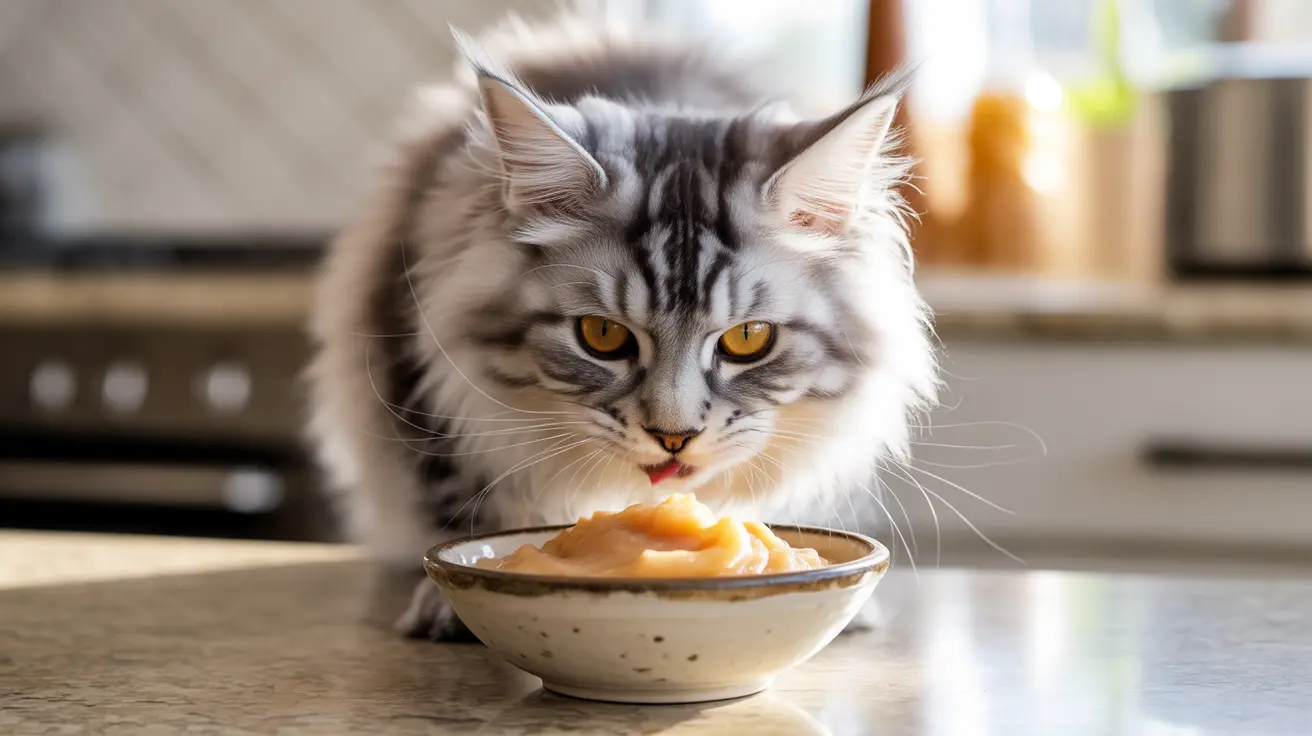As pet owners increasingly explore human food options for their feline friends, the question of whether cats can eat applesauce has become a common concern. While cats are obligate carnivores whose primary diet should consist of meat-based proteins, many pet parents wonder about the safety and potential benefits of offering applesauce as an occasional treat.
In this comprehensive guide, we'll explore everything you need to know about cats and applesauce, including safety considerations, potential risks, and expert recommendations for serving this human food to your feline companion.
Understanding Cats' Dietary Needs
Before delving into applesauce specifically, it's important to understand that cats have evolved as strict carnivores. Their digestive systems are specifically designed to process animal proteins and fats, not fruits or sugary substances. Unlike humans and even dogs, cats lack the ability to taste sweetness due to the absence of specific taste receptors.
Safety Considerations for Feeding Applesauce to Cats
While plain, unsweetened applesauce isn't toxic to cats, it's not an ideal treat choice. Most commercial applesauce contains added sugars, preservatives, and artificial ingredients that could potentially harm your cat's health. Even natural applesauce should only be offered in very limited quantities, if at all.
Potential Risks and Concerns
Several risks are associated with feeding applesauce to cats:
- Digestive upset including vomiting and diarrhea
- Blood sugar spikes from added sugars
- Possible allergic reactions
- Exposure to harmful preservatives
- Risk of obesity with regular consumption
Guidelines for Serving Applesauce
If you decide to offer applesauce to your cat, follow these essential guidelines:
- Choose only plain, unsweetened applesauce
- Limit portions to no more than 1/2 teaspoon
- Monitor your cat for any adverse reactions
- Never feed applesauce containing artificial sweeteners
- Avoid varieties with added spices, especially cinnamon
Healthier Alternatives to Applesauce
Instead of applesauce, consider these cat-appropriate treats:
- Small pieces of cooked, plain chicken
- Commercial cat treats formulated for felines
- Freeze-dried meat treats
- Cat grass for those seeking vegetable matter
When to Avoid Applesauce Completely
Some cats should never be given applesauce, including those with:
- Diabetes
- Obesity
- Sensitive stomachs
- Existing dietary restrictions
- Food allergies
Frequently Asked Questions
Can cats safely eat applesauce, and what are the potential risks?
While cats can technically eat plain, unsweetened applesauce in very small amounts, it's not recommended. Potential risks include digestive upset, blood sugar issues, and exposure to harmful additives in commercial varieties.
How much applesauce can I give my cat without causing harm?
If offering applesauce, limit portions to no more than 1/2 teaspoon occasionally. However, it's best to avoid making it a regular treat.
What ingredients should I avoid in commercial applesauce when feeding it to my cat?
Avoid applesauce containing added sugars, artificial sweeteners, preservatives, spices (especially cinnamon), and any artificial flavors or colors.
Can cats with diabetes or obesity safely consume applesauce, and what are the health implications?
Cats with diabetes or obesity should not consume applesauce due to its sugar content and potential impact on blood glucose levels. These conditions require strict dietary management.
How can I introduce applesauce to my cat's diet safely to avoid digestive upset?
If you choose to offer applesauce, start with a tiny amount (less than 1/4 teaspoon) and observe your cat for 24 hours for any adverse reactions. Only use plain, unsweetened varieties, and always consult with your veterinarian first.
Conclusion
While small amounts of plain applesauce aren't immediately dangerous to most healthy cats, it's not a recommended treat option. Cats derive no nutritional benefit from applesauce, and the potential risks outweigh any perceived benefits. Instead, focus on providing your cat with a balanced, meat-based diet and appropriate feline-specific treats.






